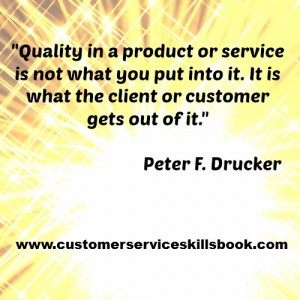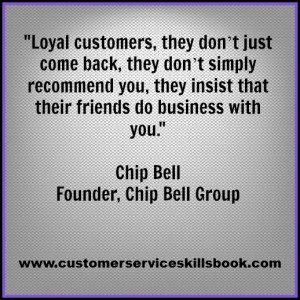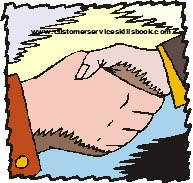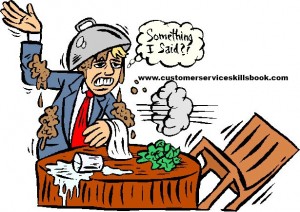
Impact of the Economy on Customer Service Representatives
On an individual level, customer service representatives should be researching and upgrading their knowledge and skills related to dealing with people from around the world. This means, reading more articles and books on various cultures, customer service, and human behavior, attending training programs, taking educational courses, attending more conferences focused on customer service and generally becoming attuned to the world around them. This enhanced perspective and environmental knowledge will provide tools necessary to provide the best customer service possible.
Not since the 1980s have economic indicators (e.g., stock trades, home sales, purchases, international transactions, and construction) been in such turmoil worldwide. Many people have lost jobs, personal savings are dwindling, people are losing their homes, and spending is down greatly around the world. As the economy took a downward spiral in the latter part of the first decade in the twenty-first century, consumer confidence shifted, many organizations struggled to provide quality service levels with reduced staff, and budgets and revenue from products and services slipped for most organizations as consumers held onto precious cash.
In addition to government policy and economic changes, new legislation impacting healthcare and taxes, job elimination in the government sector, and shifts in consumer spending have significantly impacted many organizations, forcing downsizings and in many cases closures. This is especially true in small businesses where a Gallop Poll of small business owners found that “30 percent of owners say they are not hiring because they are worried they may no longer be in business in 12 months.” Further, 66 percent of those interviewed said they were worried about the current state of the economy and its impact on business. Obviously, this has long-term implications for hiring in the service industry and for consumers who have been curtailing their buying habits since the start of the recession out of the same fears that business owners are experiencing.
According to an interview comment by Phil Rist, executive vice president of BIGinsight, a consumer-centric information portal, “Events that have transpired over the past four years have forever changed consumers, and this is evidenced in what they deem expendable and untouchable purchases. The financial meltdown, natural disasters, and the threat of terrorism have sent shock waves through consumers and impacted their priorities. The added layer of advancing technology has changed how they research and make purchases . . . the retail landscape will likely never be the same.”
Overall, consumers do business as never before. Large numbers of customers search and do their homework for products and services online and often use retail outlets as a showroom to physically examine things they are interested in potentially purchasing. The result is that sales in brick-and-mortar stores are down for many retailers and suppliers. Best Buy instituted a price-matching strategy in March 2013 to combat this shop-around practice. They decided to match prices for all product categories against all local retail competitors and major online operations such as Apple.com, Dell.com, hhgregg.com, homedepot.com, Lowes.com, and other highly recognized retailers.
Another important factor related to the changes in the economic environment that have occurred in recent years is that many companies have made dramatic shifts in the way they do business and attempt to attract and hold customers. They are reevaluating their pricing and presentation of products and services, as well as, their policies and procedures for providing service. People and technology are being harnessed in different ways to allow them to compete in a global society. The approach to customer service in many instances is no longer “business as usual.” Instead of viewing it as something that should be done well, most organizations now see it as something that must be done. Managers have realized that they can no longer maintain the status quo and do things like they always have if they plan to stay in business and generate profits.

Because of the financial meltdown that occurred during the high point of the recession, many organizations that have been household names for decades and had international presence have cut back severely on the size of their workforce and sold off, merged, or closed operations. They have also have taken dramatic steps to attract and keep customers. Companies like Chrysler, General Motors (GM), Citigroup, Goldman Sachs, and American Express received funds through the Emergency Economic Stabilization Act of 2008 from the U.S. federal government to remain financially solvent. In addition, companies struggled (and still do in many instances) to find a balance between profitability and providing quality service. For example, companies like Sears, J.C. Penney, Best Buy, Dell, Borders Books, Hollywood Studios, Blockbuster, and other notable companies have continually juggled their retail and service policies since 2010 in an effort to remain competitive and stay in business. Some succeeded while others did not. All of this turmoil and change has had an adverse impact on the economy, the service industry, and ultimately employees and potential employees.
For more information on how the customer service profession is changing and the skills, customer service representatives need to succeed in providing quality customer service, get a copy of Customer Service Skills for Success.
About Robert C. Lucas
Bob Lucas has been a trainer, presenter, customer service expert, and adult educator for over four decades. He has written hundreds of articles on training, writing, self-publishing, and workplace learning skills and issues. He is also an award-winning author who has written thirty-seven books on topics such as, writing, relationships, customer service, brain-based learning, and creative training strategies, interpersonal communication, diversity, and supervisory skills. Additionally, he has contributed articles, chapters, and activities to eighteen compilation books. Bob retired from the U.S. Marine Corps in 1991 after twenty-two years of active and reserve service.
Make Money Writing Books: Proven Profit Making Strategies for Authors by Robert W. Lucas at Amazon.com.
The key to successfully making money as an author and/or self-publisher is to brand yourself and your company and to make yourself and your book(s) a household name. Part of this is face-to-face interaction with people at trade shows, library events, book readings, book store signings, blogging or guest blogging on a topic related to their book(s). Another strategy involves writing articles and other materials that show up online and are found when people search for a given topic related to a topic about which the author has written.
If you need help building an author platform, branding yourself and your book(s) or generating recognition for what you do, Make Money Writing Books will help. Bob’s popular book addresses a multitude of ideas and strategies that you can use to help sell more books and create residual and passive income streams. The tips outlined in the book are focused to help authors but apply to virtually any professional trying to increase personal and product recognition and visibility.











